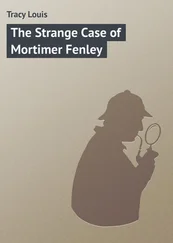DEMOCRACY BY DECREE
Beginning in 1992, Chubais acquired a broad portfolio, ranging from privatization and the restructuring of enterprises to legal reform, the development of capital markets, and the creation of a regulatory framework for business and securities transactions. A number of commissions dealing with bankruptcies, tax arrears, and debt were set up under Chubais, who also headed the GKI and in 1994 became first deputy prime minister. The creation of the Commission on Economic Reform in 1995 was further confirmation, as the Russian newspaper Kommersant-Daily states, that “a new center of economic power is being created around First Deputy Prime Minister Anatoly Chubais.” With “very great” powers, the commission was described as “a quasi-Council of Ministers … in direct competition with the bodies that have already been vested with such powers.”82 As sociologist Kryshtanovskaya summed it up, “Gradually, his [Chubais’s] men started controlling not just privatization, but also the anti-trust policy, the bankruptcy mechanism, taxes, relations with regions (including the organization of the gubernatorial elections) and what was called ‘the propaganda work’ in Soviet times.”83
Chubais’s program was so controversial that he ultimately had to rely largely on presidential decrees, the preferred method of many market reformers, for implementation. Members of the Chubais Clan bragged that, after the privatization program passed Russia’s parliament, “every subsequent major regulation of privatization was introduced by Presidential decree rather than parliamentary action.”84 And a 1996 presidential directive dictated that only Chubais (at the time Yeltsin’s chief of staff) had the authority to decide whether presidential decrees were ready to be signed—a directive that could be circumvented only upon receiving direct instructions from the president.85
Over the years, many aid officials embraced this dictatorial modus operandi and promoted presidential decree and the circumvention of parliamentary authority as a means of achieving market reform. Jonathan Hay and his associates actually drafted many of the Kremlin decrees. As USAID’s Walter Coles, a key American official in the privatization and economic restructuring program in Russia, pointed out, “If we needed a decree, Chubais didn’t have to go through the bureaucracy.” Further, with U.S. funding, Western public relations firms have engaged in “public education” to promote privatization. USAID spent $18.9 million on public education for mass privatization alone, including publicity around the voucher auction.86 Acknowledging the lack of political support for many “reform” measures, Coles said, “There was no way that reformers could go to the Duma [the parliament of the Russian Federation set up in 1993] for large amounts of money to move along reform.”87 They didn’t have to. U.S. assistance policies in Russia, like some of those in Central Europe, supported specific individuals and reforms at the expense of democratic processes and institutions.
Of course, the Russians themselves are primarily responsible for the manner in which reform was carried out. But by putting its reform portfolio in the hands of the Chubais Clan, USAID alienated other parties to the reform process who clearly had to be brought on board if legal and regulatory reforms were to be implemented. Without public support or understanding, decrees constitute a weak foundation on which to build a market economy. Some reforms, such as lifting price controls, may be achieved by decree. But many others, including those of privatization and economic restructuring, depend on changes in law, public administration, or mind-sets, and require cooperation across the full spectrum of legislative and market participants, not just a clan. Without support from parties to the reform process, reforms were almost certain to be ignored or even subverted during implementation.
A case in point was USAID’s showcase effort to reform Russia’s tax system and to set up clearing and settlement organizations (CSOs)—an essential ingredient in a sophisticated financial system. Those efforts failed largely because they were put solely into the hands of one group, which declined to work with other market participants. In Moscow, for example, despite millions of USAID dollars, many of the Russian brokers were excluded from the process and declined to use the Moscow CSO.88 Thus, since 1994, when consultants working under USAID contracts totaling $13.9 million set out to design and implement CSOs in five Russian cities, very little evidence of progress has emerged. The GAO’s report called the CSO effort “disappointing.”89
This did not surprise Charles Cadwell, a consultant working in Russia under USAID’s legal reform program. He explained that “to the extent you want to control relationships among firms and to affect the behavior of managers, that is the last thing that can be done by decree. Managers will continue to operate in the old ways until there are incentives to operate in new ones. You have got to have people on board.”90 Responsible USAID contractors working in Russia also felt compelled to address the issue of inclusion. As Cadwell put it, “Do you access and deal with local politicians and political realities, or do you bulldoze over them?”91
Indeed, some influential Russians complained of just that. Leonid Abalkin, director of the Institute of Economics of the Russian Academy of Sciences, said that American aid was “given to Chubais” and that it was about “personal contacts.”92 Sergei V. Burkov, chairman of the Duma’s Committee for Property, Privatization, and Economic Activity, concurred that American aid supported one particular political group. The “process needs to be opened up,” he stated.93
It is easy to understand the donors’ impulse to support a “reformer” group. As the U.S. Department of State’s deputy aid coordinator (now coordinator) William B. Taylor explained, U.S. aid officials chose a narrow focus: “We have a limited amount of money. If you spread your money too thin, you probably won’t have as much of an effect. As [USAID Administrator] Brian Atwood has said, you can go [in] … as a sprinkler and spread out over a lawn or can go in as a firehose.”94 Of course, the strategic targeting and coordination of resources are critical. But USAID went further to sustain certain firemen. As USAID’s Coles proclaimed, “Reformers are the ones that are willing to take the risk. Their necks are on the line.”95
While this approach sounds good in principle, it is less convincing when put into practice because it is an inherently political decision thinly disguised as a technical matter. As Harvard-Chubais principals Andrei Shleifer and Maxim Boycko themselves acknowledged in an American book funded by the Harvard Institute96 and found on the desks of many USAID officials:
Aid can change the political equilibrium by explicitly helping free-market reformers to defeat their opponents.… Aid can help reformers by paying for the design and implementation of their projects, which gives them a greater capacity for action than their opponents have. Aid helps reform not because it directly helps the economy—it is simply too small for that—but because it helps the reformers in their political battles.97
In a 1997 interview, Ambassador Richard L. Morningstar, the Department of State’s top aid official, stood by this approach: “If we hadn’t been there to provide funding to Chubais, could we have won the battle to carry out privatization? Probably not. When you’re talking about a few hundred million dollars, you’re not going to change the country, but you can provide targeted assistance to help Chubais”98—an admission of direct interference in Russia’s political life.99
Читать дальше












